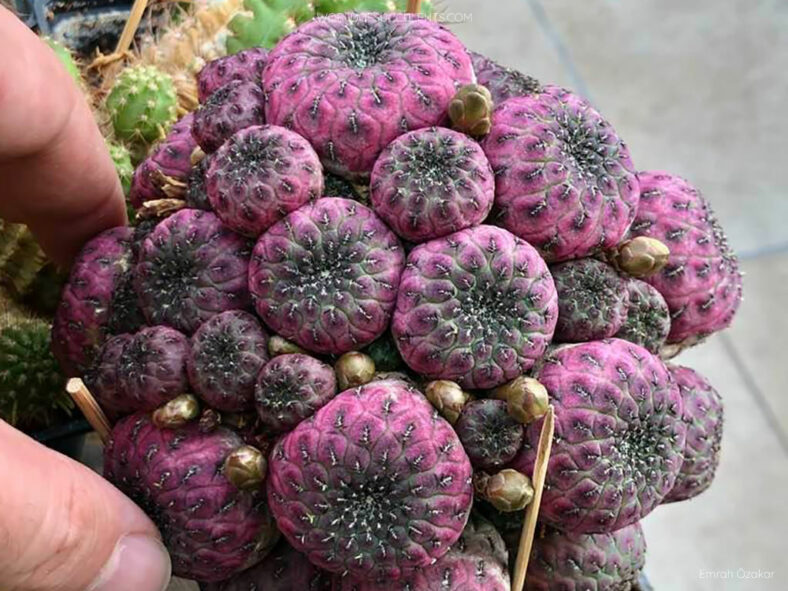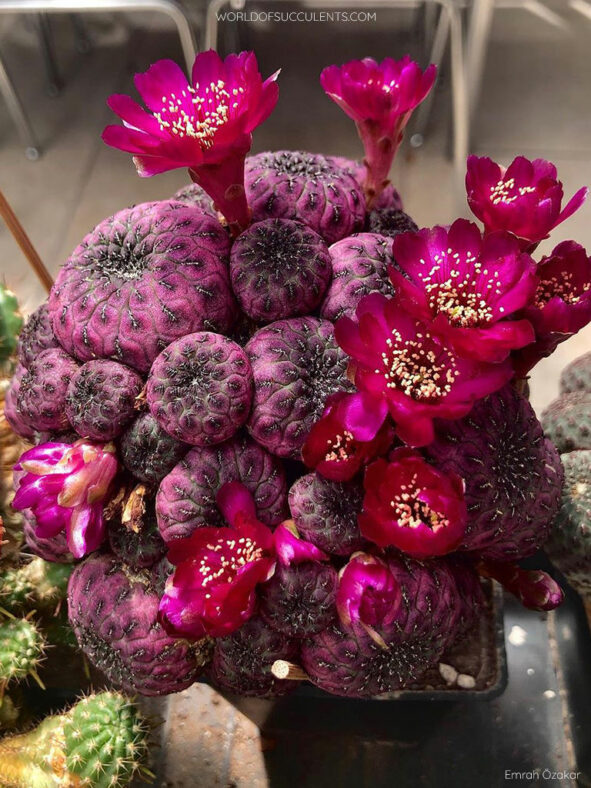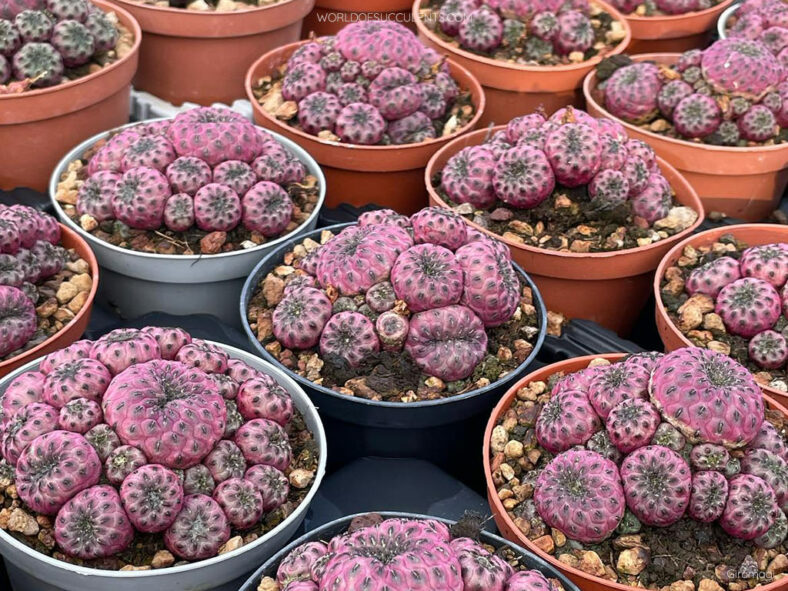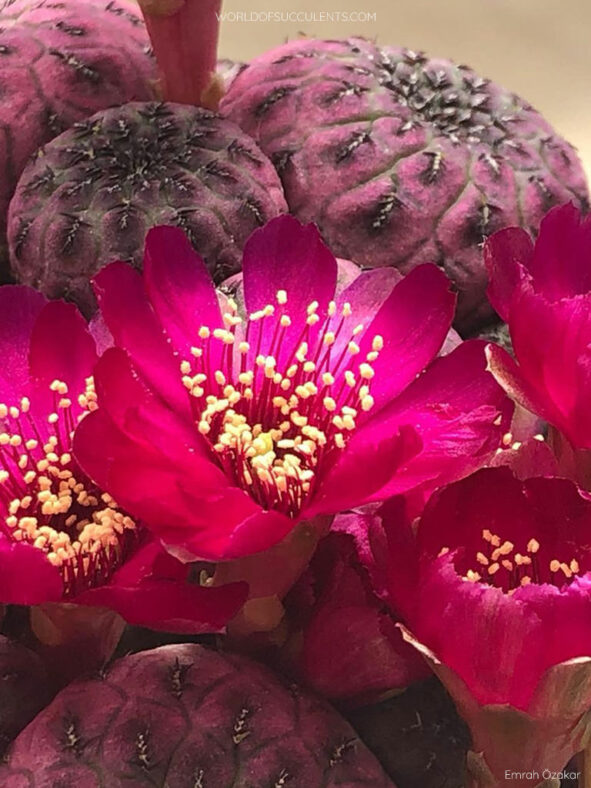Weingartia rauschii f. violacidermis is an eye-catching cactus with vibrant hues on the stems, making it attractive even when it is not in flower.
Taxonomy of Weingartia rauschii f. violacidermis
Scientific Name
Weingartia rauschii f. violacidermis
Accepted Scientific Name
Weingartia rauschii (G.Frank) F.H.Brandt
Synonym(s)
Rebutia rauschii f. violacidermis (misapplied), Sulcorebutia rauschii f. violacidermis
Scientific Classification
Family: Cactaceae
Subfamily: Cactoideae
Tribe: Trichocereeae
Genus: Weingartia
Etymology
The specific epithet "rauschii" (pronounced "ROWSH-ee-eye") honors Walter Rausch (1928-2022 ), an Austrian cactus expert and plant collector.
The formal epithet "violacidermis" (pronounced "vy-oh-lah-see-DER-miss") means "violet-skinned" or "having violet-colored skin" and refers to the color of the stems.

Description of Weingartia rauschii f. violacidermis
Weingartia rauschii f. violacidermis, also known as Sulcorebutia rauschii f. violacidermis or Rebutia rauschii f. violacidermis, is a lovely small cactus that forms a dense clump of spherical stems with violet spirals of flat tubercles. The stems can grow up to 1.6 inches (4 cm) tall and 2 inches (5 cm) in diameter. Each tubercle has a narrow, white-felted areole bearing a comb-like cluster of appressed spines. There are 9 to 11 radial spines on each areole, while the central spines are absent.
This cactus blooms in late spring. The flowers are glossy, deep magenta with a paler throat, usually appear near the base of the stems, and remain open for three or four days. They are funnel-shaped and can reach up to 2 inches (5 cm) in length and diameter. The fruits are spherical, reddish-brown, measure up to 0.2 inches (0.5 cm) in diameter, and contain black seeds.
Origin of Weingartia rauschii f. violacidermis
Weingartia rauschii f. violacidermis occurs near Sucre in the Chuquisaca Department of Bolivia. Weingartia rauschii and its forms are synonymized with Weingartia canigueralii.
How to Grow and Care for Weingartia rauschii f. violacidermis
Light: While it grows well in direct sunlight, Weingartia rauschii f. violacidermis prefers partial shade during midday in the summer. A sunny window would be ideal if you are growing the cactus indoors.
Soil: Good drainage is most important for a healthy plant. You can use a commercial soil mix from cacti or make your own.
Temperature: As a mountain plant, this cactus does not appreciate high temperatures and grows best in USDA Plant Hardiness Zones 9b to 11b, with average minimum winter temperatures ranging from 25°F to 50°F (-3.9°C to 10°C).
Watering: During the growing season, water Weingartia rauschii f. violacidermis frequently, but allow the soil to completely dry out before watering again. However, when it goes dormant in the winter, stop watering.
Fertilizing: Although unnecessary, using a low-balanced soluble fertilizer diluted to half the recommended strength can help your cactus thrive. However, suspend the feeding in winter.
Repotting: For a young plant, it is recommended to repot it each year in early spring. On the other hand, a mature plant only needs to be repotted when it outgrows its pot. Late winter or early spring is the best time for repotting.
Propagation: You can propagate Weingartia rauschii f. violacidermis by offsets or seed. Remove the offsets when the plant is actively growing and sow the seeds in the spring.
See more at How to Grow and Care for Rebutia.
Toxicity of Weingartia rauschii f. violacidermis
Weingartia rauschii f. violacidermis has not been reported to have toxic effects.
Photo Gallery
Click on a photo to see a larger version.



Internal Links
- Explore all plants within the genus Weingartia.
- Explore all plants within the family Cactaceae.
References
- Pilbeam, J. (1997). The Cactus Handbook 2: Rebutia, p. 139